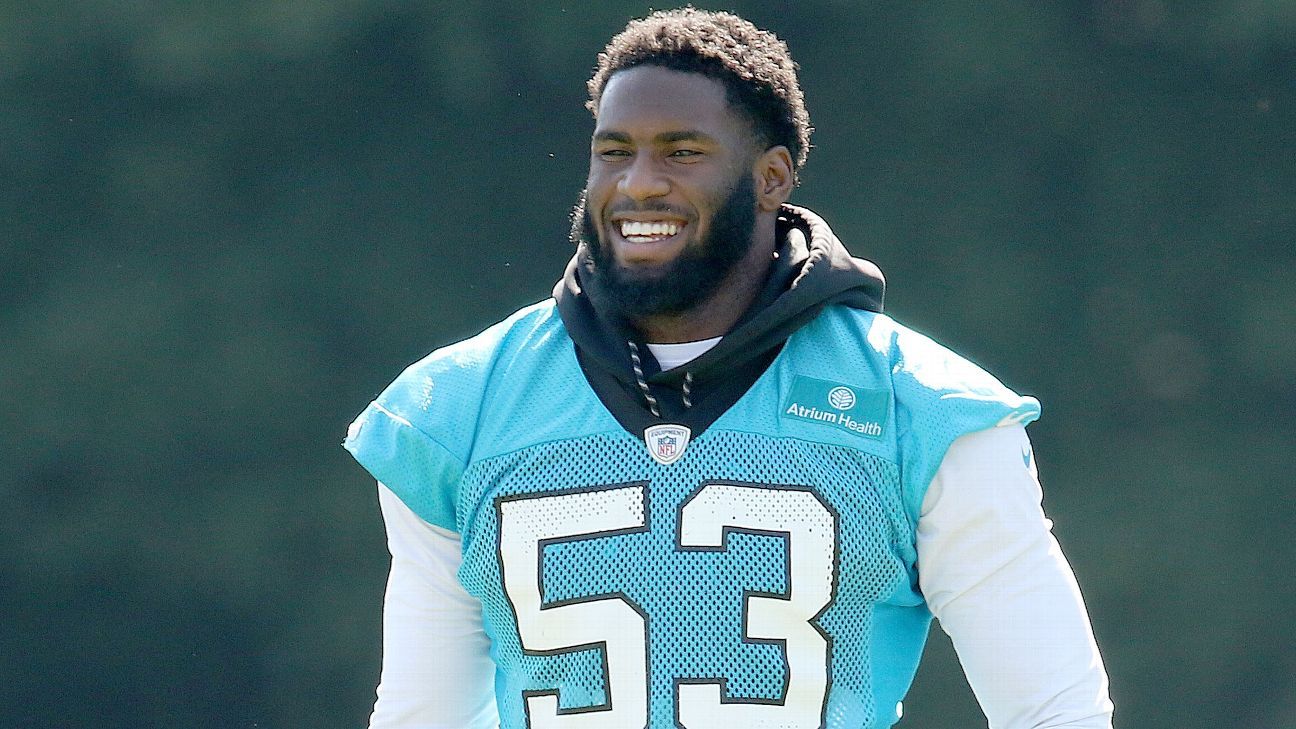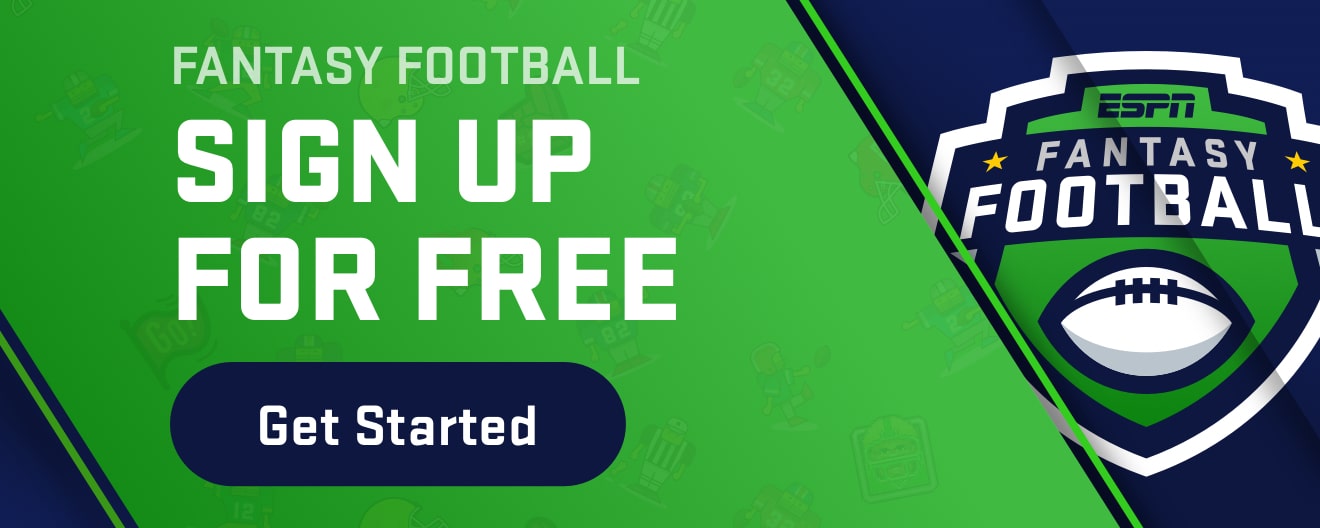- August 29, 2022
- No Comment
- 10 minutes read
‘You should want to win your sleep’: Why Carolina Panthers DE Brian Burns is seeking an edge with proper rest – Carolina Panthers Blog- ESPN – ESPN

CHARLOTTE, N.C. – Carolina Panthers Pro Bowl edge rusher Brian Burns began setting his alarm at 5 a.m. and then repeatedly in five-minute increments every day in training camp to make sure he was up before 6 a.m.
He also made sure he was in bed no later than 11 p.m. — lights out, television, computer and cell phone off.

Ready for kickoff? Sign up now to play with friends and family. Get started >>
It was a stark contrast from his offseason routine of staying up until 2 or 3 a.m. and sleeping until noon. He admitted the new schedule wasn’t easy at first, reminding he was fined as a rookie by former Carolina coach Ron Rivera because he was late for a meeting after oversleeping.
He hopes more defined sleep habits take his game to the next level and make him a better leader. He’s already feeling better on a sleep schedule.
Experts weren’t surprised.
“The more you can sleep, especially if you can align it to your natural body rhythms, you are going to perform better,’’ sports medicine specialist Dr. David Geier said. “Pro teams use various devices to track individual metrics of recovery, and those repeatedly show the more sleep and the better sleep you can get, the better all of those metrics go.’’
Nick Littlehales, a renowned sleep coach for elite athletes such as soccer star Cristiano Ronaldo and professional teams in soccer, the NBA, NHL and NFL, agreed.
“Recovery, mentally and physically, is a big part of sports at any level,’’ said Littlehales, based in the United Kingdom. “Sleep is a big part of that. Yes, we know the importance of sleep, but at the end of the day, most people put it as a take-it-for-granted thing we do at the end of the day. We focus on everything else, push the boundaries, and then we don’t pay attention to the sleep.’’
Littlehales works with the Jacksonville Jaguars and Houston Texans. He said the NFL slowly is catching up to other sports in terms of using professionals to enhance performance through better sleep.
“There are a few knocking around [the NFL],’’ he said. “But they tend to focus on sort of the clinical side, which doesn’t necessarily impact what the problem is. They don’t necessarily get involved in the nitty gritty of how to have an athlete get from A to B, which probably is where most things arise.’’
• Ranking the top 100 NFL players
• Can proper sleep give players an edge?
• Saints’ Winston learning to adapt
• How will the Broncos split carries?
• Jets’ Gardner plans to ‘dominate’
Better sleep habits are especially beneficial with teams that make a lot of cross-country or overseas trips, like the Jaguars, who have played at least one game overseas all but one season (2021) since 2013.
“It’s huge,’’ Jacksonville coach Doug Pederson said. “. . . It affects how you play. Getting the proper rest in camp, nights before games, and if we’re traveling, different time zones. All that kind of stuff can impact how a player feels and how a player plays, and coaches as well.’’
The Panthers recognized Burns’ poor sleep habits and introduced him to team internist Scott Lindblom, MD, who specializes in sleep, to help find a plan for him and other teammates with issues. Coach Matt Rhule believes it will help the 16th pick of the 2019 draft “keep chasing greatness.’’
One of the doctor’s suggestions to Burns, besides getting on a consistent sleep pattern, was to cut down on late-night use of cell phones, television and computers.
Studies have shown the artificial blue light from cell phones and other electronic devices disrupts sleep by delaying the release of melatonin, the body’s signal to start the process of sleeping.
“I try to put my phone up like at least an hour, or an hour and thirty minutes before bed,’’ Burns said. “And at least cut the TV off around that time, maybe 45 minutes before I want to go to bed.’’
Former NFL linebacker Brian Peters, now a performance consultant, learned the value of good sleep while playing for the Houston Texans (2015-18). That’s when he discovered Littlehales’ book, “Sleep: The Myth of 8 Hours, the Power of Naps.’’
Peters is now working with Littlehales on finding practical ways to apply the sleep expert’s philosophy for athletes. Peters came to understand not only was he not getting enough sleep, he wasn’t getting proper sleep.
“And I found out I was mouth breathing while I was sleeping and didn’t have a pre-sleep routine,’’ he said.
Peters went so far as to tape his mouth at night because research showed nasal breathing enhances better sleep. He said his scores on the team metrics increased significantly once he got his sleep and breathing under control.
Make one pick each week and play for the $30,000 Grand Prize!
Much of what he does now involves working with players on breathing. He talked to Carolina running back Christian McCaffrey this past offseason about those benefits even during waking hours.
“You down-regulate in between plays, which gives you energy back, so it becomes an advantage over the opponent,’’ he said.
But it all begins with better sleep.
“Not getting enough sleep doesn’t only make you tired the next day, it has a big impact on what’s happening inside your body,’’ Geier said.
That plays into recovery time, particularly for NFL players on a short week with a Thursday night game after a Sunday game. Research published by the National Library of Medicine shows poor or inadequate sleep impacts not only performance but risk of injury.
That’s one reason NFL Players Association in 2020 began providing WHOOP wristbands, which monitor and measure the length and quality of a night’s sleep and convert it into scores that are easy for players to interpret.
Peters uses the analogy of a cell phone, suggesting if you left your phone unplugged overnight and consistently had only 60 percent power in the morning you would look for ways to increase that.
“Elite athletes want to win everything,’’ he said. “You should want to win your sleep.’’
Burns began his poor sleep habits at an early age, initially staying up late playing video games. Then it became staying on his cell phone, watching television and playing with his dogs.
“The trainers talked about it, how I needed to get more sleep because I am tired sometimes,’’ Burns said. “So I made the initiative to try to change.’’
Burns already feels better and is getting more done before 8 a.m. team meetings than ever in terms of nutrition and preparation for practice and games.
“In this journey, it’s all about small accomplishments,’’ Burns said. “I feel like waking up early, making my bed, those are like small wins in the morning.
“We’ll see how it works out once the season begins.’’

